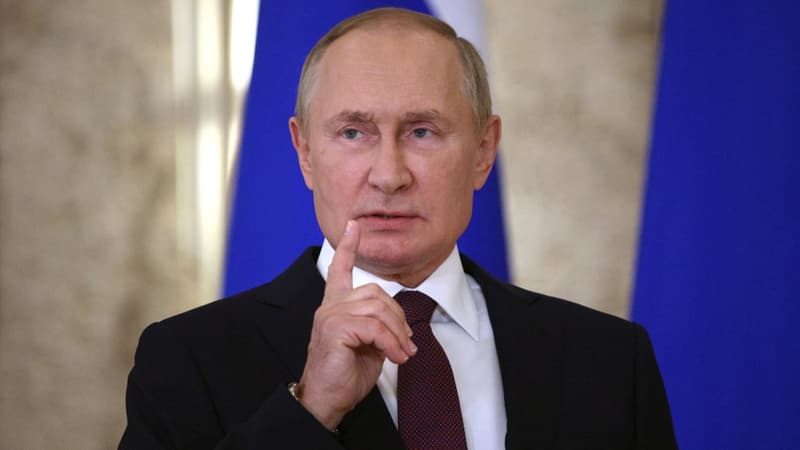President Vladimir Putin on Tuesday accused the EU of blocking the donation of 300,000 tons of Russian fertilizer to countries that need it most, at a time when Moscow complains about obstacles to Western exports.
“The height of cynicism is that even our offer (…) to transfer 300,000 tons of Russian fertilizers blocked in European ports by sanctions for free to countries in need remains unanswered,” he added, lamented Vladimir Poutine during a handover ceremony. of the credential letters to twenty ambassadors. “It’s clear: They don’t want to let our businesses make money,” he said. Before adding: “But we want to give (these tons of fertilizer) for free to countries that need it,” he argued.
Russia, a world cereal power, cannot sell its production and its fertilizers due to Western sanctions that particularly affect the financial and logistics sectors. In 2021, Russia was the largest exporter of nitrogenous fertilizers and the second largest supplier of potassium and phosphorus fertilizers, according to the Food and Agriculture Organization of the United Nations (FAO).
“illegitimate sanctions”
On Tuesday, Vladimir Putin once again lambasted the “illegitimate sanctions” adopted by certain Western countries “to strengthen their position” which, according to him, have “negative consequences for themselves” but also “for totally innocent states (which) suffer from such politics”. , in the first place the developing countries and the poorest”, he assured. According to him, it is the countries of Africa, South Asia and Latin America that “have been mainly affected by Western restrictions on the supply of Russian energy, food and fertilizers to world markets.”
These statements come at a time when Moscow is increasingly questioning two agreements concluded in July in Istanbul that allow wheat and corn to be exported from Ukraine despite the Russian offensive, but also, in theory, exports from Moscow that have been affected by Western sanctions. The Kremlin notably claims that the majority of Ukrainian food products go to European countries, which Kyiv denies.
Russian criticism of the Istanbul accords is raising fears that Ukrainian exports will be further hampered as the conflict with Kyiv raises global food security concerns amid widespread price rises on markets.
Source: BFM TV


